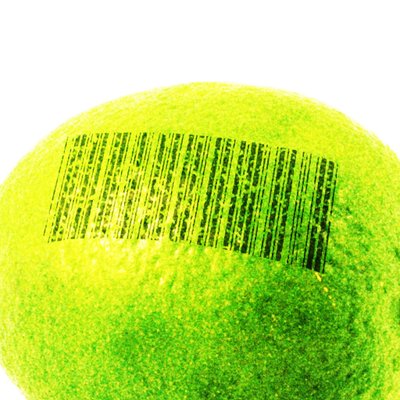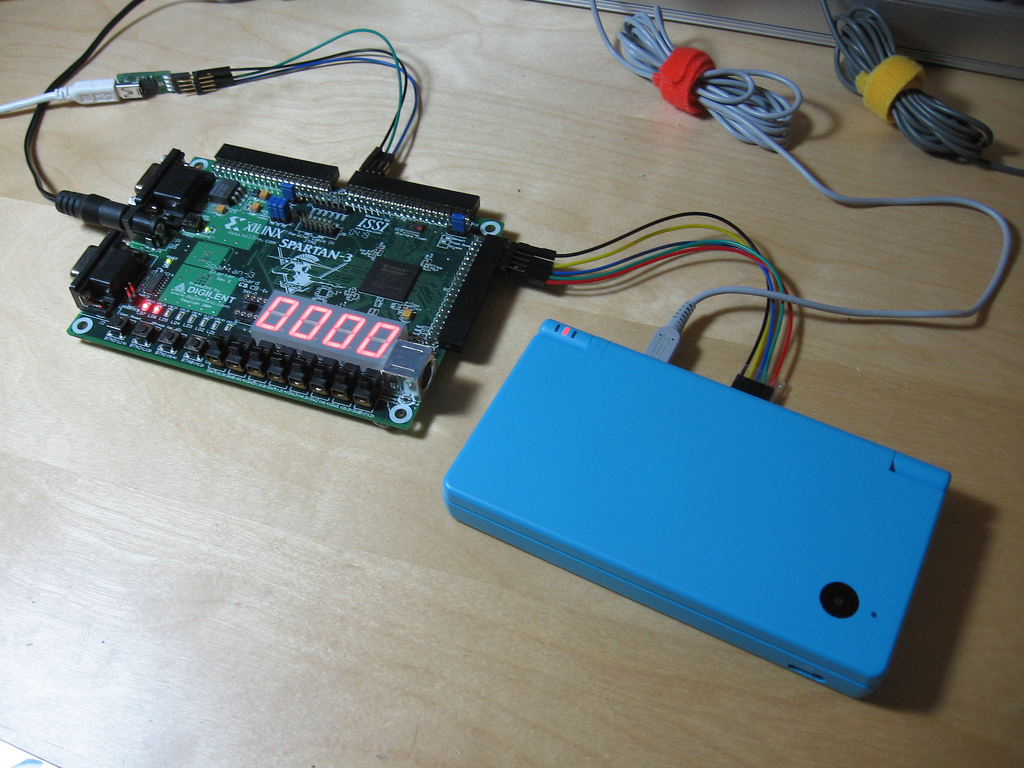I found a fun excuse to practice my digital logic design over the past few days:
This is an FPGA emulating the SPI EEPROM (save game memory) in a modified Nintendo DS game cartridge. The emulated EEPROM is backed by 1 MB of SRAM, and there is a USB interface that you can use to simultaneously read or write the SRAM from a PC.
You can use it to really quickly modify or inspect the contents of a game’s save memory- for example, for developing save game exploits or reverse engineering save file formats. You can also use the large memory space as a fast shared memory buffer, for sending debugging information or memory dumps back to the PC, or for loading larger blocks of code from the PC.
The FPGA design is written in Verilog, and I’m running it on the popular Digilent Spartan 3 board. The upload/download tool that runs on the PC is written in Python, plus it can be used as a Python module for writing more complex tools that interact with the DS through this shared memory buffer. Source code (navi-misc/nds/spi-mem-emulator) is in Subversion, and released under an MIT-style license.


